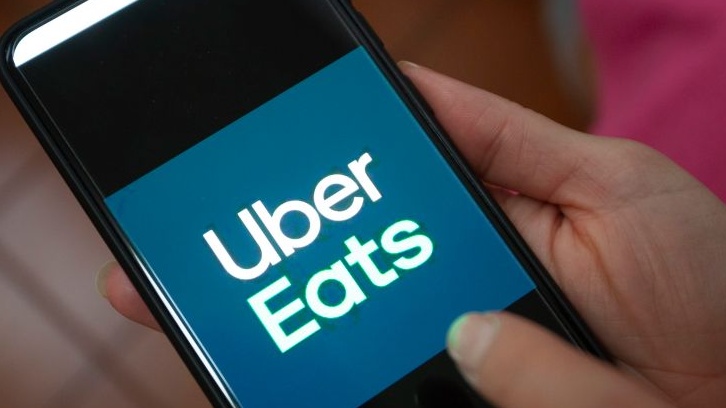Uber Eats is facing backlash after users discovered that their new "Black Owned" tab was being abused by restaurants that are not owned by Black people, according to Vice News.
This summer, at the height of the protests over police brutality and racism, Uber Eats joined many other companies in making minor concessions and changes in order to provide some help to Black people and businesses.
The company, along with DoorDash and others, created a "Black Owned" tag that could be added to a restaurant's profile. Uber Eats waived all delivery fees for Black-owned restaurants that were not large chains, providing a lifeline to many Black restaurants struggling to survive during the coronavirus pandemic.
"Uber Eats is committed to standing with Black communities and using our platform to highlight and promote local Black-owned restaurants. As part of this effort, Uber Eats is featuring Black-owned restaurants in the app so that they can reach customers with a $0 Delivery Fee funded by Uber Eats through December 31, 2020," Uber Eats wrote in a guide on its website.
The guide adds that the company wants to make sure that Black-owned restaurants "are included in the Black-owned banner that's visible in-app to all Uber Eats users within the restaurant's delivery radius through December 31, 2020, can easily be found by customers who search the app for 'Black-owned', and are highlighted to customers through other potential Black-owned icons and landing pages."
While initially hailed as a positive, supportive move, over the past few months users have begun to notice that restaurants without Black owners were using the tag.
Yo @UberEats y'all just let anyone claim black owned now? pic.twitter.com/ozN8at9wbu
— Mecha Aizen (@SameOSteboG) December 5, 2020
In addition to Oregon-based restaurant Toast & Jam, Vice News also found multiple other restaurants, including Philadelphia's Abunai Poke and Crepeaway in Washington D.C., were using the tag despite admittedly not having Black owners.
Many Twitter users spotlighted other restaurants using the tag despite very obviously not being Black-owned. Uber Support commented under many of the posts asking people to direct message them about the restaurants.
In their guide, Uber Eats explained that restaurants can "self identify" as Black restaurants by filling out a form. Uber Eats even addresses the prospect that restaurants without Black owners would use the tag, writing that the company is "working with a wide range of local organizations to identify Black-owned restaurants, and we're continuing to work with these organizations to ensure the accuracy of our lists."
They even ask users to contact the company if they notice anything off about the list of Black-owned restaurants. Uber Eats described their process of choosing "Black-owned" restaurants on the page as well, writing that groups of employees at Uber "including members and allies of the Black @ Uber employee resource group," spent time working on a large list of independent, Black-owned restaurants.
"These lists were compiled from publicly available sources along with input from local organizations and business associations across the US and Canada," Uber Eats wrote in its guide.
@UberEats how is it that these non black owned business are taking advantage of your current offerings for black businesses? I can verify these are not black owned. Come on. pic.twitter.com/g7gLXeeR2G
— Hakuna Matata (@Justanswerme617) December 15, 2020
In his piece about the issue, Vice News' Edward Ongweso Jr. noted that the decision to allow restaurants to self-identify as Black-owned was part of a larger trend of companies offloading all responsibility onto other entities while reaping the benefits.
"Having such a barebones process that clearly has issues does not exactly square with a commitment to racial justice—instead, it seems more aligned with a commitment to a business model that, whenever possible, will extract value from Black people whether as workers or as advertising campaigns," Ongweso Jr. wrote.
